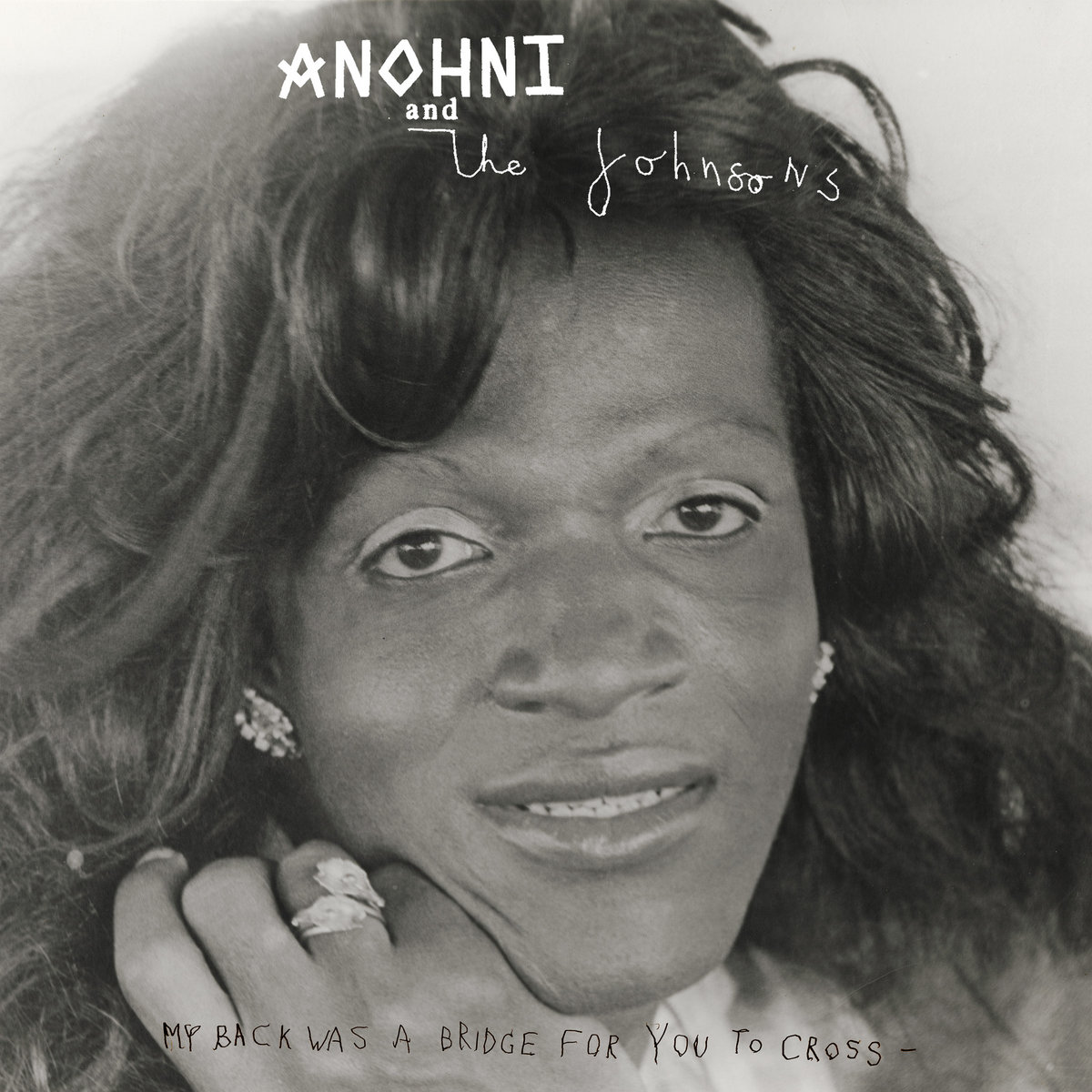ANOHNI and the Johnsons
My Back Was a Bridge for You to Cross
SECRETLY CANADIAN
ABOVE THE CURRENT
ANOHNI has one of the most remarkable—and one of the saddest—voices in modern music. It’s a voice that stops you in your tracks, makes you take a deep breath and hold it as you try to feel every goosebump on your skin that it elicits. Perhaps there’s no better example of its devastating power than “Hope There’s Someone,” the first song on ANOHNI’s stunning second record with The Johnsons, 2005’s I Am a Bird Now. Riddled with pain and majesty and vulnerability and, yes, hope, it was the paradigm of that band’s non-conforming musical anachronism, entirely not of its time and yet, through its sheer, unfiltered expression of human emotion, dwelling right at the center of it.
Fast forward 11 years, ANOHNI released her debut solo album Hopelessness on which, as the title suggests, all hope had vanished. In stark contrast to the raw, personal emotion of the work she’d done with the band, this was a starkly political and largely electronic album that railed—simultaneously violently and beautifully—against imperialism, capitalism, neoliberalism, war, and systemic injustice, among other things. “Drone Bomb Me,” for example, was a love song from the perspective of an Afghani girl whose family had been killed by a drone bomb, and, by extension, a direct attack on then-President Obama’s excessive use of that technology as his time in office counted down.
My Back Was a Bridge for You to Cross is her first album since 2016, and sees her once again utilizing the original band moniker. There are a couple of original members here, but the significance of that is more in the way of it marking a return of sorts from the darkly political to the profoundly personal. Or, more precisely, blending the two together: the cover photo is of the late gay liberation activist and drag queen Marsha P. Johnson, whom ANOHNI met in 1992 when the latter was 21. Six days later, Johnson’s body was found floating in the Hudson River—something which had a profound and lasting effect on ANOHNI, which she channels here in these songs.
Using Marvin Gaye’s What’s Going On as a central influence, ANOHNI has crafted a record that bridges distinct times in both history and her life—as well as one that addresses the struggles that minorities have faced, particularly in the US, since before that album came out over half a century ago. Opener “It Must Change” is her version of that perpetual clarion call, then: a soulful, seductive, and soothing song that sees her combine sung vocals with spoken word segments and more organic instrumentation than usual. While a fine introduction, it falls just short of her usual majestic fire. Thankfully, that fire emerges almost immediately—first in the frenetic (and almost punky) grit of “Go Ahead,” then in the sublime tenderness and vulnerability of “Sliver of Ice” and “Scapegoat,” on which ANOHNI nearly embodies the spirit of Nina Simone at her most broken and defiant.
It’s “Rest,” though, a deeply powerful spiritual-cum-gospel-blues tune that invokes and evokes a deeply rich musical and personal history, which establishes itself immediately as one of the most phenomenal songs in her career. It’s raw and vulnerable, but there’s rage and defiance present too, as there is throughout this whole album. It ends with a question and an answer—the almost rootsy “Why Am I Alive Now?,” a song full of musical levity but with plenty of existential angst and frazzled nerves, and “You Be Free,” a calming acoustic lullaby that gently recasts and reshapes intergenerational trauma, infusing it with strength, intentionality, and purpose.
My Back Was a Bridge for You to Cross is a complex piece of work, but one executed with precision and grace, and which offers a sliver of light in a world that doesn’t necessarily deserve it, despite the darkness—both personal and political, recent and historical—that inspired it.









